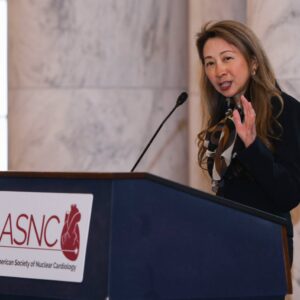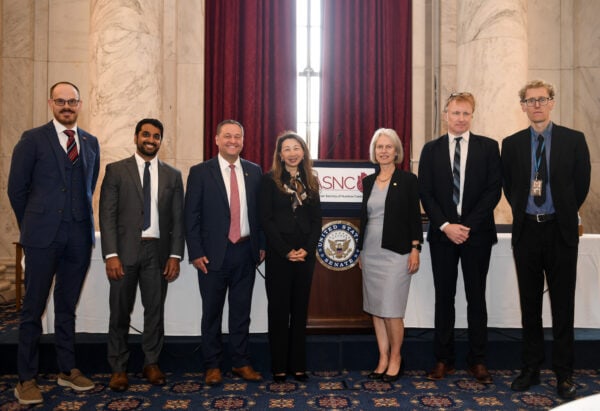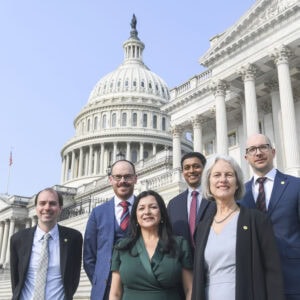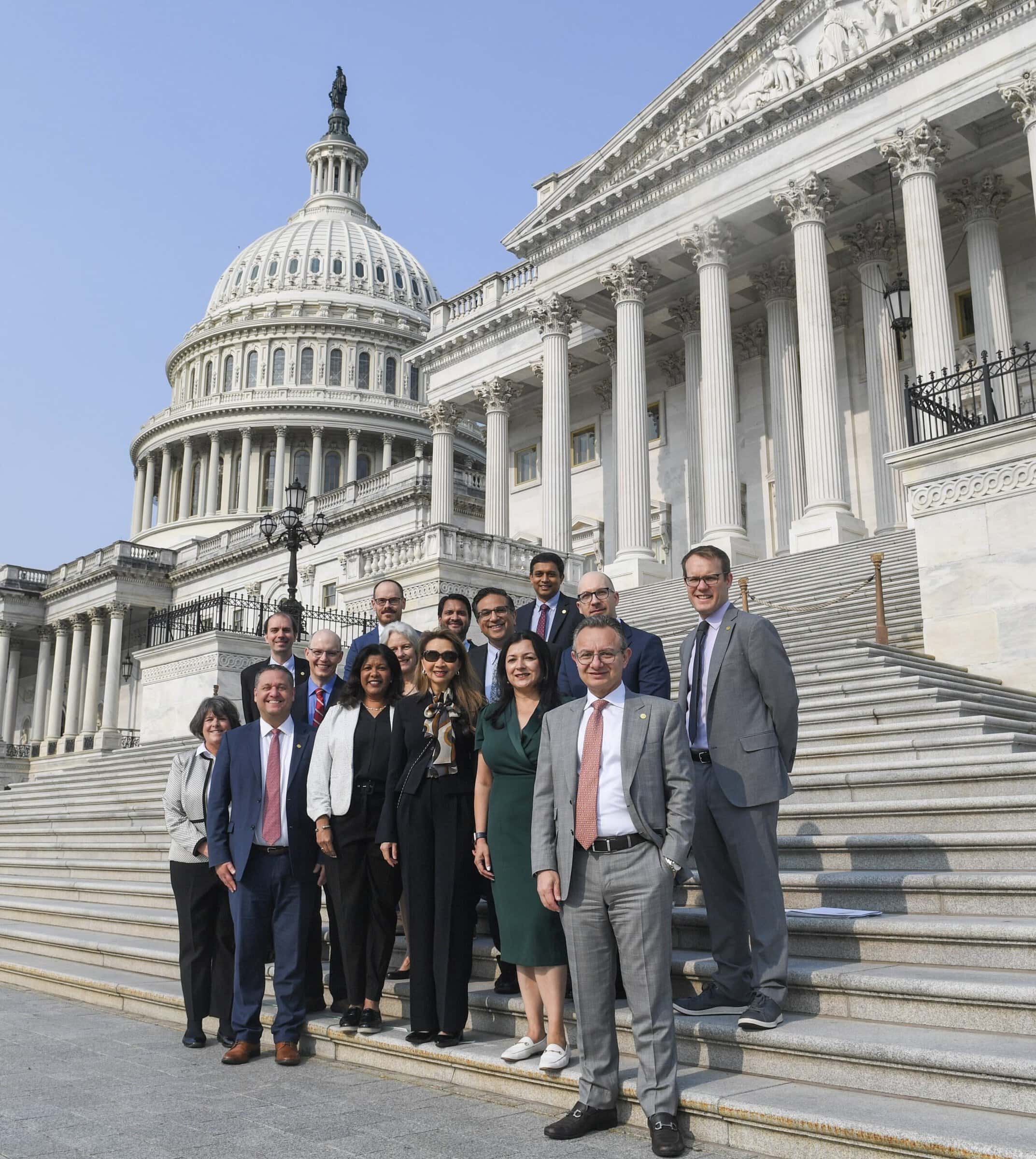
Speaking at ASNC’s congressional briefing, ASNC President Panithaya Chareonthaitawee, MD, said, ‘Nuclear cardiology helps us detect heart disease before it turns deadly – it’s about prevention, precision, and saving lives.’
All Ideas Welcome: Building on Legislative and Other Proposals
The panel discussion highlighted issues with PA processes, as exposed by Patrick Rucker’s investigative reporting into practices used by EviCore to deny care and by a Senate report on care-denying tactics used by UnitedHealthcare, Humana, and CVS.
“The perspectives from the panelists really validated the angst and frustration clinicians experience when they try and pursue testing and treatment for their patients,” says ASNC Immediate Past President Lawrence Phillips, MD, MASNC, panel moderator. “Fundamental changes are needed right now to fix these processes and move the patient back to the center.”

Speakers at ASNC’s congressional briefing, titled Care Denied: How Prior Authorization Is Harming Patient Care and Contributing to Physician Burnout. From left: David E. Winchester, MD, MS, FASNC, Neil Patil, MPP, Lawrence Phillips, MD, MASNC, Panithaya Chareonthaitawee, MD, Friederike Keating, MD, FASNC, Patrick Rucker, and Ryan McDonald
The primary goal of the briefing, Dr. Phillips adds, was brainstorming solutions. The panelists’ suggestions were numerous and varied. Dr. Winchester referenced gold-card programs, where physicians with a proven record of having procedures approved would be exempt from future PA requirements for applicable services. He noted that denied preauthorizations appealed to the physician-to-physician level are almost always granted, suggesting appeals processes should be reformed.
Mr. Rucker emphasized that there must be more accountability for health plans and greater burden on plans to prove when a healthcare service recommended by the treating physician is not necessary.
Neil Patil, MPP, a Medicare policy analyst, noted that patients would benefit from more transparency from health plans on rates of approvals and denials of items and services, especially when artificial intelligence (AI) is used. He also highlighted that Centers for Medicare & Medicaid Services (CMS) oversight of PA use in Medicare Advantage plans does not necessarily extend to companies that health plans hire to review authorization requests.
More Transparency Is Key

Members of ASNC’s Health Policy Committee on Capitol Hill. From left: Daniel Huck, MD, MPH, David E. Winchester, MD, MS, FASNC, Suman Tandon, MD, FASNC, Vikas Veeranna, MD, Friederike Keating, MD, FASNC, and Attila Feher, MD, PhD
Article Type
News & Announcements
Category
Advocacy, Prior authorization
Related Posts
This Legislation Would Halt Pay Cut Now Impacting Most Physician Services
“The 2.5% reduction to work RVUs – the so-called ‘efficiency adjustment’ –…
Manufacturer Shares Update on HMDP Supply
ASNC is staying in touch with radiopharmaceuticals manufacturers that were expecting shortages…
Medicare Telehealth Flexibilities Expire as Federal Government Partially Shuts Down
Congress’s failure to pass the remaining 6 fiscal year 2026 spending bills,…


